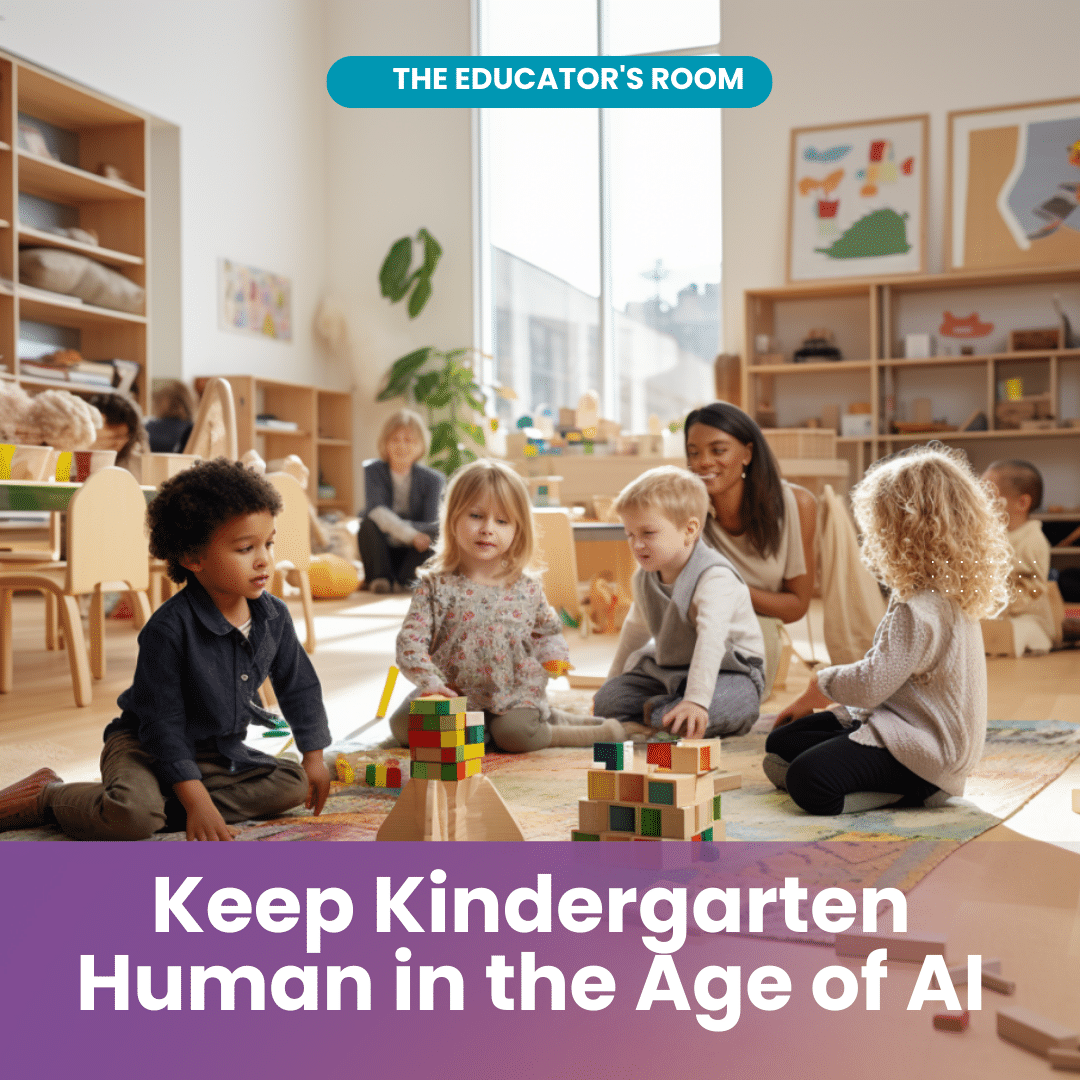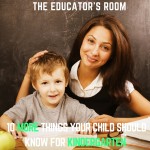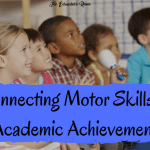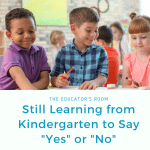We’ve heard a lot about artificial intelligence (AI) in the classroom, from software that can ace exams to programs that aim to catch cheaters. But one intersection needs a closer look: the consequences of AI for early childhood education, especially in kindergarten.
Long ago, our school system was modeled after factories, incorporating principles of standardization, hierarchy, and control to maximize output. Although all grade levels bear some of the brunt of this outcome-based approach, Kindergarten, in particular, has been increasingly engulfed by it, prioritizing skills like reading and writing even for children who are not yet developmentally ready to learn them.
Kindergarten 1.0
Do these proficiencies best prepare our children for life in this era? In this age of AI, we argue that we should cultivate the inherently human ‘soft’ skills AI cannot emulate—empathy, collaboration, discernment, authenticity, and love. The case sounds straightforward: ‘soft’ skills are now assuming unprecedented importance, and the ideal window to instill them, primary school, opens in Kindergarten. So that’s when we should start teaching them.
Wrong, many educators (and parents) would say. They represent the countervailing pressure to turn Kindergarten into ‘first grade 0.9,’ with a heavy focus on academics, in particular, reading, writing, and arithmetic, as measurable outcomes of “effective” education (and therefore as supposed predictors of future collegial and professional success). People who adopt this outcome-oriented stance discount the value of ‘soft’ skills, and the activities that nurture them, such as kids playing together, making crafts, listening to stories, and getting their hands dirty. These activities aren’t designed to simply pass the time. They help children learn to generate ideas, work together, and understand each other, developing the very skills that will help them in a world where many of the “hard” skills will be somewhat taken over by AI (much like spelling has already been taken over by computer spell check).
Kindergarten: The Development of Soft Skills
Sadly, not only are we failing to set high enough goals when it comes to the development of soft skills, we are currently failing to meet the already subpar standard, in large part due to the overexposure of young children to computerized devices. For instance, Rachel has noticed that Kindergarteners are less interested in originality, play, and interaction than they used to be. In the classroom, wooden building blocks, which used to lead reliably to special teaching moments, often sit untouched. Even when prodded to explore the blocks, rather than building structures with them, Kindergarteners (particularly boys) will often hold up a block and pretend it is a character from their favorite video game, before quickly losing interest.
We worry that, already in Kindergarten, these children’s prevailing narratives are being shaped by their interactions with computer screens, and that the spark of creativity typically ignited by classroom play and exploration is beginning to go out. The technology that they should be learning to navigate is driving them away from important soft skills. The atrophying of young children’s social and emotional skills began years ago – the advent of the smartphone in 2007 was one accelerator – and it has worsened after the COVID lockdowns that lasted through the several years that presently constitute a third or more of our youngest school childrens’ lives (and even more of their lives since they learned to speak).
The Turning Point of Kindergarten
We’re at a turning point. Instead of overloading kids with academics, we should be working to balance intellectual growth with emotional growth. Keep in mind that the developmental growth in Kindergarten is significant: the difference between age four and age five is 20% of a child’s life. Similarly, the range of development among young kids is large. So, adherence to a rigid curriculum can be off-target and inequitable, frustrating students by pushing skills for which they are not developmentally ready and which they could easily learn a few months later when they are ready.
Every educational choice we make comes with a trade-off. School time spent on one goal cuts into others. If we make Kindergarten like high school, emphasizing academics, we’re missing out on an opportunity to promote emotional development. Rather, in the age of AI, we should be making the grade levels through high school more like a well-designed Kindergarten curriculum, emphasizing uniquely human skills. Sure, kids need to learn reading and writing when they are ready. But they also need to understand the complex world around them, to listen actively, and to bounce back from tough situations. We do need to help kids achieve academics-based success. But we also need to prepare them for failures and for the challenges they’ll face in a world where AI will largely obviate many of the academic skills we emphasize too much.
Measuring Success in Kindergarten
To do this, we need more than just new teaching methods. We need to change how we measure success. Instead of excessive focus on academic standards, we should be looking at whether our kids are growing into the well-rounded, empathetic, curious, and resilient people we want them to be. Instead of making early education more like the rest of school, let’s build up the most important parts of kindergarten, those pertaining to social development, and then better infuse those strengths into the rest of school.
Emphasizing emotional development in kindergarten could help us in areas where we are currently falling short. Some schools have a ‘’Portrait of a Graduate’ framework that describes the qualities schools profess to want in graduating seniors. These qualities include things like being a lifelong learner, a caring citizen, a community contributor, and a mindful explorer. If we truly measured success against this framework and designed our curriculum accordingly, our youngest students would already be leading the pack. Instead, our present approaches squelch, or at least don’t encourage, these strengths that children are developmentally prepared to express. It doesn’t need to be this way. Starting in Kindergarten we can help better prepare our kids for the world they’ll be shaping.


Rachel Ruina has been a Kindergarten teacher in the Washington DC area for 20 years. Ben Szuhaj is a consultant who focuses on issues surrounding artificial intelligence.







This is an excellent and important article. Clearly the authors have thought a great deal about this critical issue. Now let’s get it into the hands of those making decisions about education!